Piece Hall - Fish and Fruit
Halifax Piece Hall - The Fruit and Veg Years
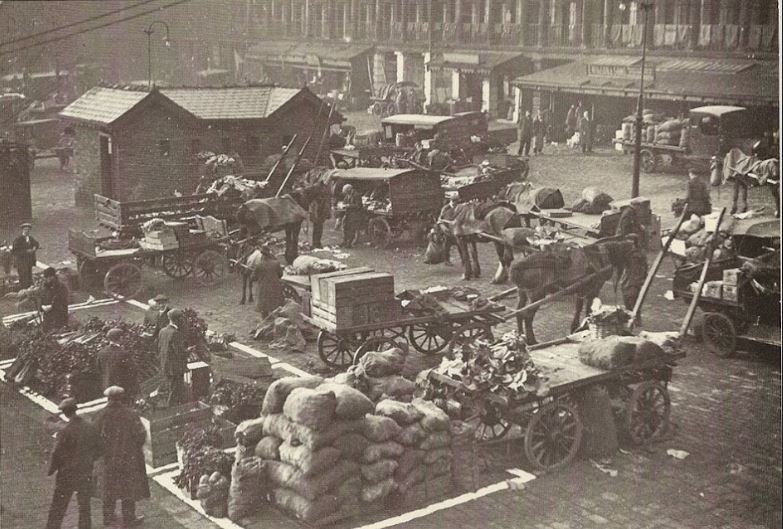
The town's finest building was opened in 1779 as a "Manufacturer's Hall" at which the district's many independant weavers of wool tectiles could sell their "pieces" of cloth to merchants. But almost as soon as it was built and open for business, the Piece Hall was gradually becoming redundant because the industrial revolution was under way, creating large factories which eventually drove the small weavers out of business
By the 1930s, more than 100 of the Piece Hall's 315 rooms, tenanted by merchants, were unoccupied. The trade was dying.
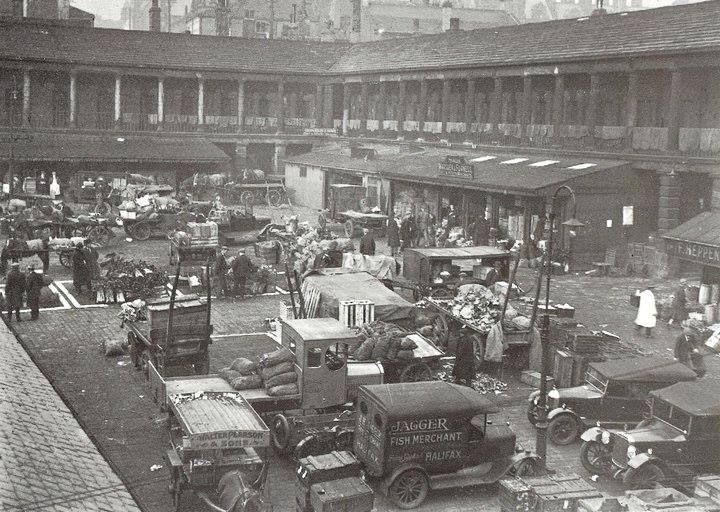
It lingered on until 1868, when the Piece Hall was made over to the Halifax Corporation nad by 1871 it had been converted into a wholesale fish, fruit and vegetable market, a role it was to occupy for just over 100 years, longer than it had been a textile hall.
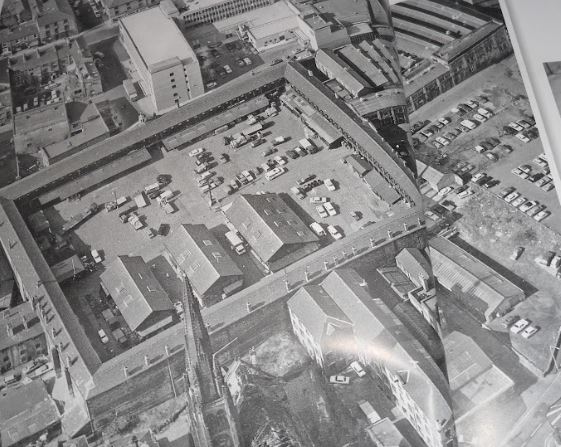
As the pictures show, its use as a food market meant that a number of sheds were built around the perimeter of the hall's open space and three large "chalet-style" brick structures were built in the middle of it.
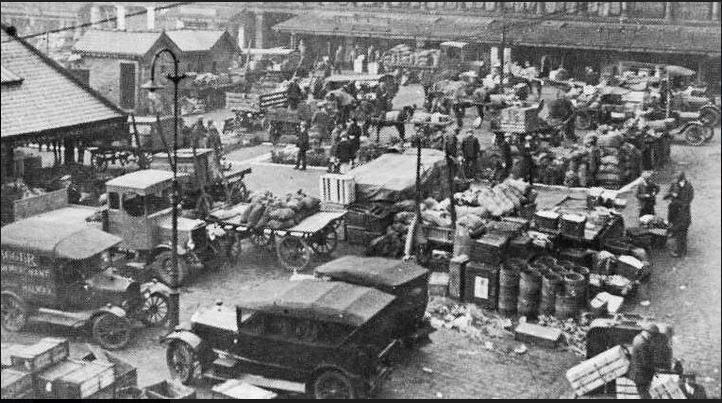
This meant that the Piece Hall could no longer be used for the communal events that had taken place there in the first half of the 19th century, such as the famous Sunday School "Sings", when vast crowds packed the building.
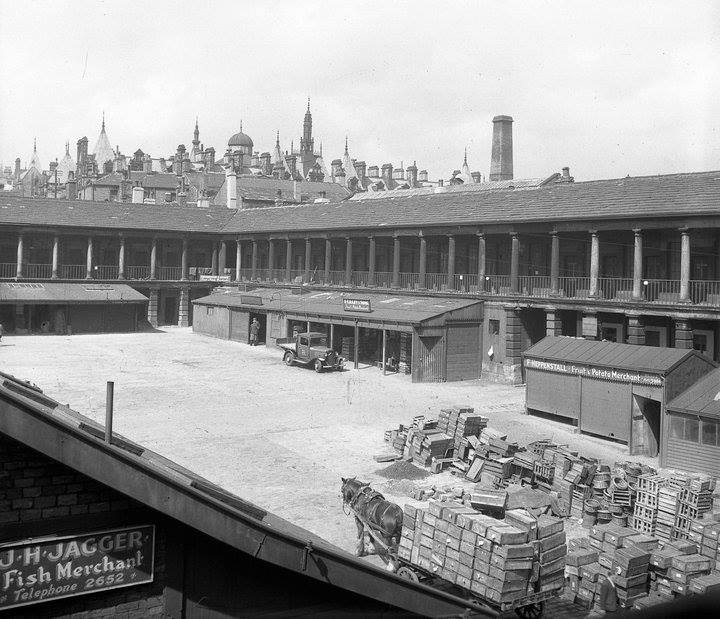
The pictures include views of the fish, fruit and vegetable market in its last days, in the early 1970s. When the decision was taken to renovate the Piece Hall and transform it to the mixed use tourist attraction that it is today, the wholesalers had to depart by 1974.
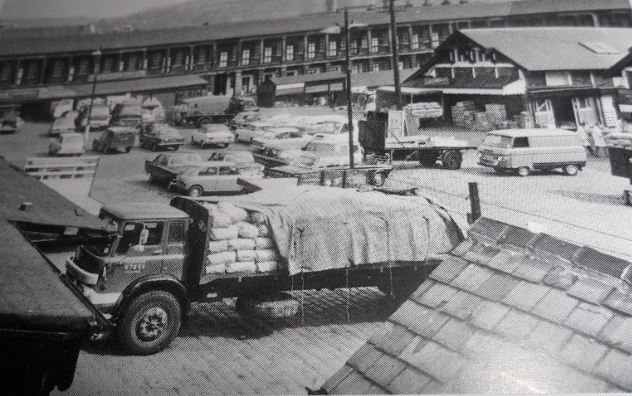
Some re-established themselves at a new wholesale market on Victoria Road, Halifax.
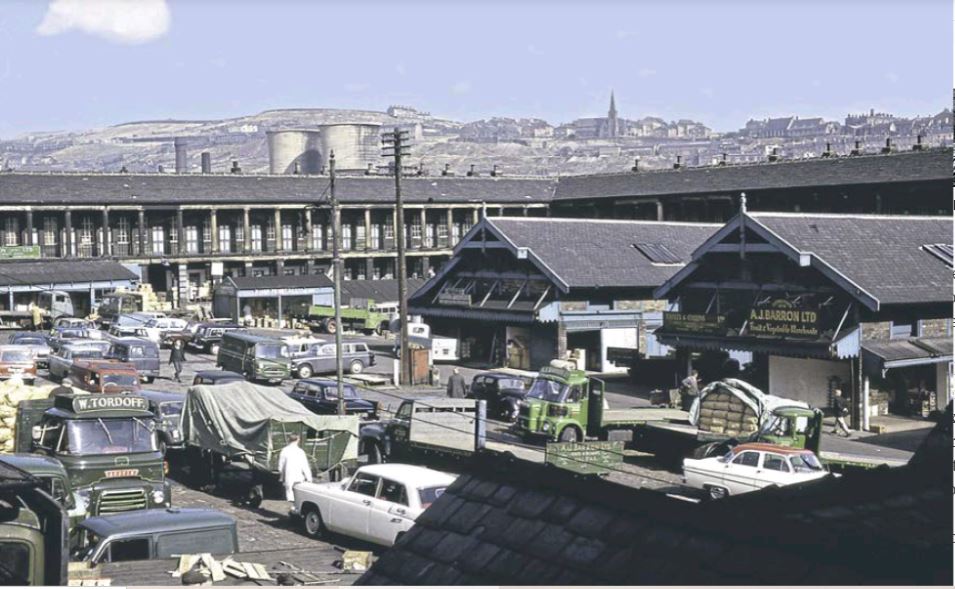
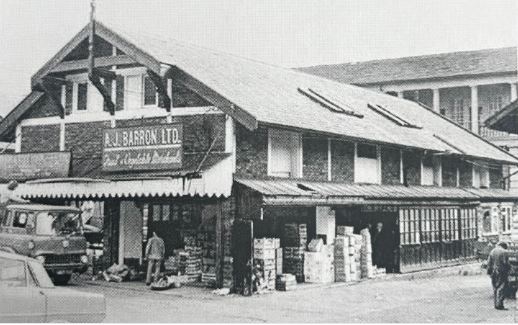
This chalet-type building was occupied by one of the fruit and veg firms based in the Piece Hall.
If you have enjoyed your visit to this website, please spread the word by clicking the 'like' and 'share' buttons below. Thank you


